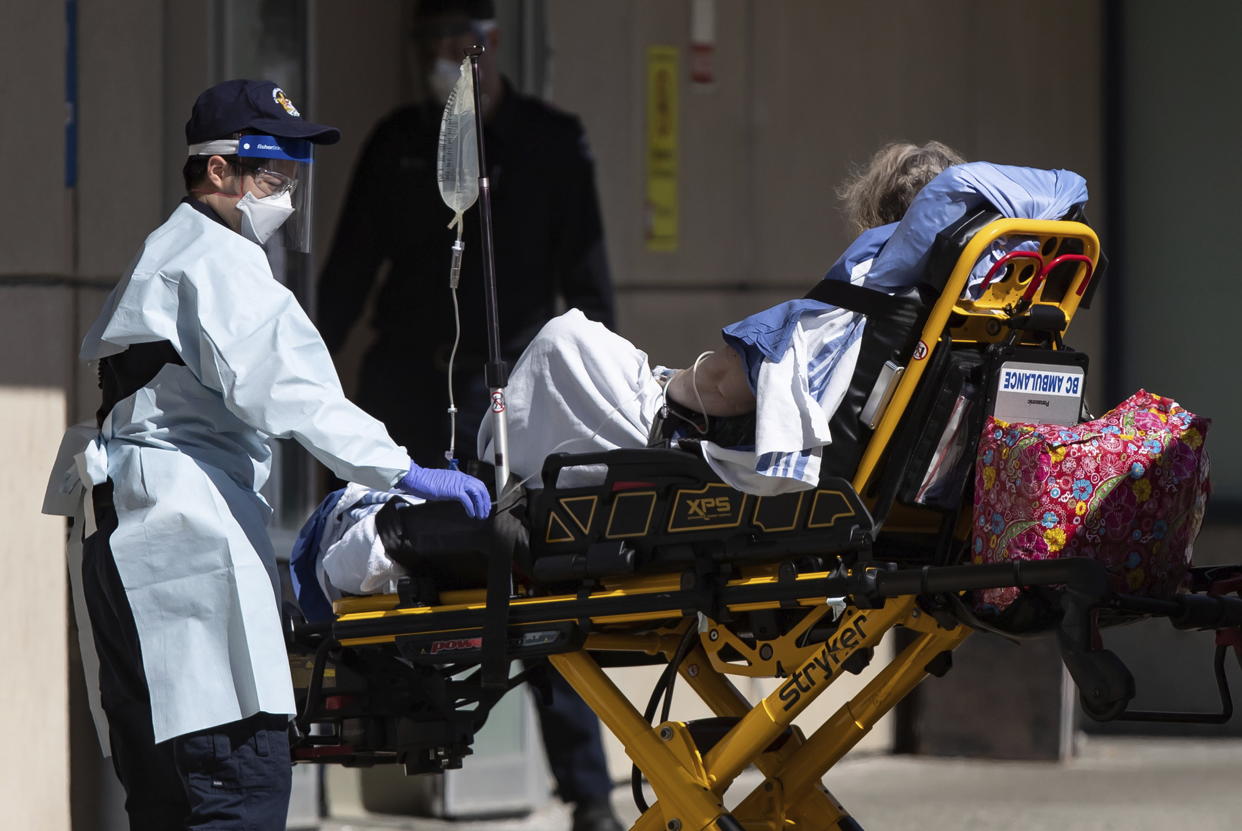Tell Us: Has Canada handled the COVID-19 pandemic in a timely manner?

What’s happening
On March 11, the World Health Organization declared COVID-19 a global pandemic, as a result of the fast spread of the virus and the lack of action from many countries. Worldwide, it’s led to more than 2 million cases and hundreds of thousands of deaths. The numbers are constantly rising and a vaccine isn’t expected any time soon.
In Canada, there’s been tens of thousands of confirmed cases and more than one thousand deaths. All provinces and territories have ordered lockdowns, forcing non-essential services to shutter and millions of citizens to stay at home.
Why there’s debate
Based on numbers, it’s clear that some countries took longer to get into action. America’s top health official, Dr. Anthony Fauci, recently told CNN that the U.S. could have saved lives if measures were in place earlier to stop the spread. While he admitted that the decision making process has been complicated, he said that “if we had, right from the beginning, shut everything down, it may have been a little bit different."
In contrast, Canada was one of the first countries outside of China to report cases of the virus, even though the number of cases in Canada is still relatively low, compared to many other countries. Still, there are some people that are critical of the country’s handling of several aspects of the pandemic, including the time it took to start implementing changes and the lack of testing across the country.
What’s next
Since the pandemic is still spreading, it is unclear when the lockdown will be lifted, borders will reopen and non-essential services will begin to operate again. In a recent news conference, Prime Minister Justin Trudeau said Canada is still weeks away easing pandemic restrictions and going back to business as usual. While many labs are working on a vaccine, it could take up to a year to be approved.
Perspectives
Pros
Slow and steady wins the race
“This is not just a numbers game. In the teeth of an emergency, the country craves leadership and the relief that comes with the sense that the people running the government know what they are doing. Our politicians and public servants are often berated for an apparent inability to operate anything more complicated than a kettle. But after a slow start, the prime minister, his cabinet and senior bureaucrats like chief public health officer, Theresa Tam, have provided clear direction and a regular flow of information to anxious Canadians.” - John Ivison, National Post.
A united front, unlike the U.S.
“However lethargic Mr. Trudeau has appeared at times since the October election, the Prime Minister has performed well this week, despite being forced to work from home after his wife Sophie Grégoire Trudeau tested positive for the virus. Cabinet ministers, especially Health Minister Patty Hajdu, have handled their files well. Contrast that with Mr. Trump’s efforts to play down the pandemic. In public announcements, the U.S. President seeks only to cast blame on others and to praise himself. By his actions, he has contributed to crucial delays in testing that allowed the virus to spread.” - John Ibbitson, The Globe and Mail
“[Trudeau’s] finest hour”
“The prime minister appears in public every day, alone, outside his residence. He speaks sensibly, with authority, without hyperbole. This has been his finest hour. Canadians trust him. They may not have voted for him – only about one-third did – but that doesn’t matter now.” - Andrew Cohen, Ottawa Citizen
Cons
Too many different systems
“Until it improves its game the country will continue to muddle through while patting itself on the back as if it is setting some kind of global standard. In fact, Canada needs to shift into a higher gear, quickly. Over the last two months it has often looked as though 13 different provincial and territorial health systems have had to reinvent the wheel, play catch-up or go it alone.” - Andrew Nikiforuk, The Tyee
More testing is needed
“On March 16, World Health Organization director-general Dr. Tedros Adhanom Ghebreyesus said: ‘You cannot fight a fire blindfolded, and we cannot stop this pandemic if we don’t know who is infected. We have a simple message for all countries: Test, test, test, test.’...For a successful campaign against COVID-19, authorities need a low threshold for testing and access to effective and efficient — and abundant — tests. Only then can they fight this fire without blindfolds.” - Warren Bell, National Observer
Provinces can’t do it alone
“The prime minister is called upon almost daily in the media scrum outside his home at Rideau Cottage to explain why the federal government has not invoked the Emergencies Act. Canadians perceive the COVID-19 pandemic to be an emergency and rightly so. The problem is that the Act can only be employed when an emergency rises above the ability of any one province to cope with the situation and there is, as a consequence, a risk to other provinces. The mere fact that there are different approaches to the pandemic across the country is not by itself sufficient to trigger the Act. However, as the pandemic unfolds, it has been clear that our provinces are not able to ensure sufficient testing for COVID-19. Without this, there is no hope of notifying all those who have been exposed and, in turn, testing and – crucially – isolating them too, if positive.” - Colleen M. Flood, CBC





